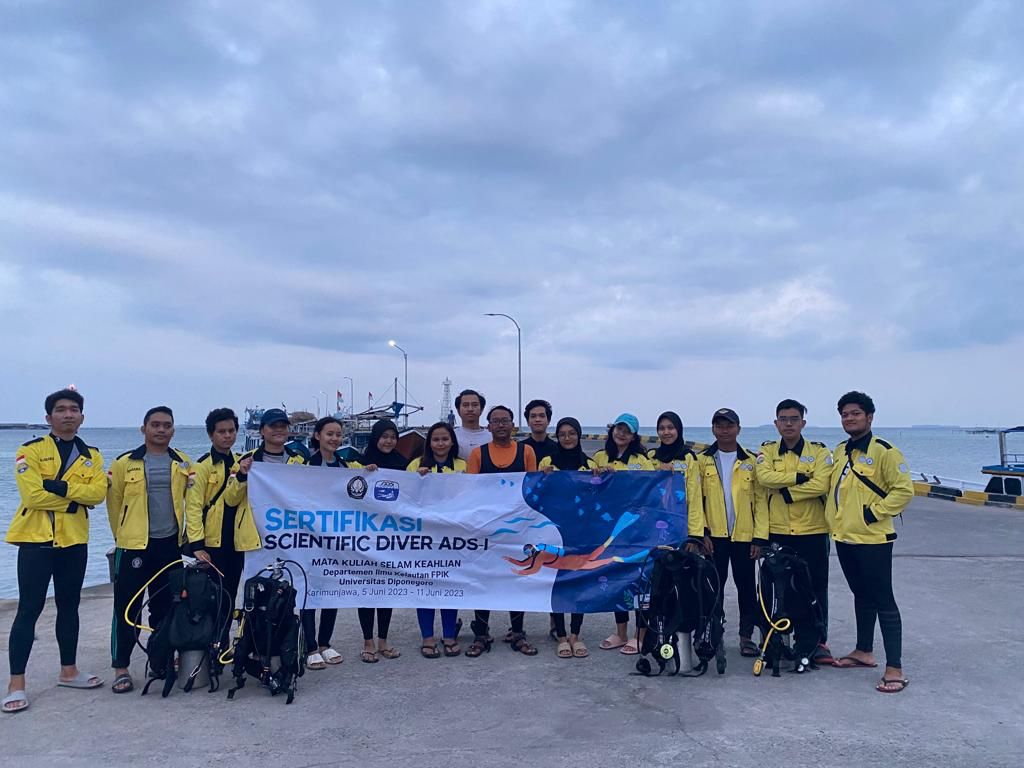Expertise diving is a subject in the Undergraduate Study Program (S1) of Marine Sciences. This course studies the application of diving knowledge to various activities such as Scientific and Research Dive. Scientific Diving can be defined as a diving activity for various scientific purposes, such as underwater observation, underwater measurement, underwater data collection, underwater sampling, and underwater image/video capture. The application of scientific diving can be used by various fields, such as marine biologists, marine geologists, marine archaeologists, marine technology and instrumentation.
The output of this course is that students get certificates as Intermediate Scientific Divers and Basic Scientific Divers. The purpose of this certification is to add value and improve the quality of Marine Science student resources, especially as a scientific and research diver and increase awareness of the importance of environmental conservation. This certification activity is supported by the Department of Marine Sciences and the Association of Diving Schools Indonesia (ADS-I) and is carried out by a lecturer in the 2023 Skills Diving course, namely Dr. Ir. Munasik, M.Sc. and Dr. Agus Trianto, S.T., M.Sc., Ph.D.
During the field implementation, this certification activity was led directly by Bonifacius Arbanto, S. T., M. Si. as a diving instructor from ADS-I. This certification activity was carried out from 5 – 11 June 2023 with a total of 31 students participating from the Marine Science Undergraduate Study Program. This certification activity took place in Karimunjawa with several different dive spots, starting from Menjangan Kecil Island, Menyawakan Island and Galean Island.
For Basic Scientific Diver, the material being tested is how to apply the Manta Tow method to quickly assess coral reef ecosystems. As for the Intermediate Scientific Diver, the material being tested is the implementation of the Point Intercept Transect (PIT) method to assess the health of coral reef ecosystems as well as Monitoring Artificial Patch Reef (APR) which includes measuring the length of coral transplants, coral recruitment measures, fish and megabenthos data collection, and a review was also carried out on the physical condition of the APR building itself. The purpose of testing several methods of assessing coral reef ecosystems is to improve environmental conservation, especially in marine ecosystems.

